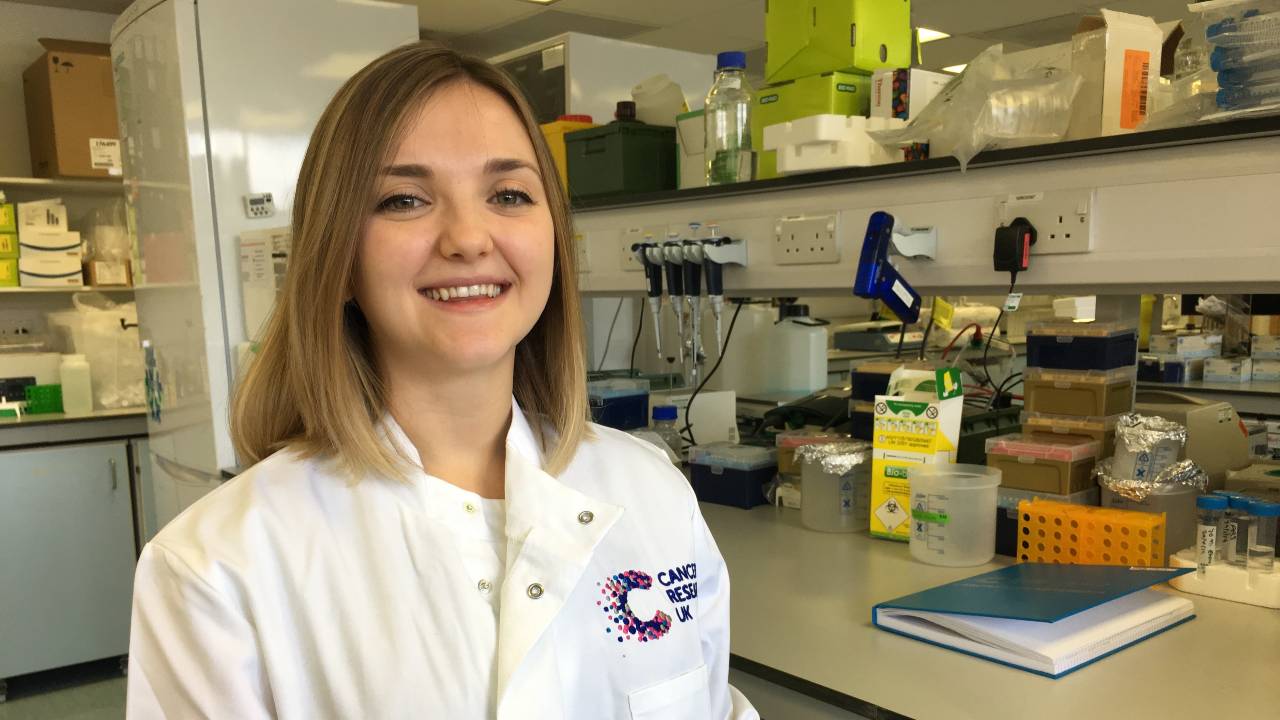Charlotte Bell graduated from the MPharm Pharmacology course in 2017.
Choosing pharmacology
Biology was my favourite subject at school, and I especially enjoyed the human side learning about different physiological functions and disease.
When looking into different degree courses, I was immediately drawn to pharmacology because of the course’s focus on understanding how medicines work and the relevance to human disease. Helping to develop effective treatments for patients was definitely something I could see myself doing in my future career.
Life at Bath
On my first visit to the University of Bath on an Open Day, I loved the campus and everyone I met was so friendly and welcoming. The Bath pharmacology integrated masters course includes an industrial placement year, all within the 4-year degree, which is very unique. I spent the third year of my degree working at MedImmune (now part of AstraZeneca), which gave me invaluable experience and without a doubt made me stand out when I was applying for PhD positions.
I found the pharmacology course to be very well-rounded, covering a wide range of topics such as organic chemistry, biopharmaceutics, human physiology and drug discovery. In my final year, I was able to choose between optional units, so there was scope to tailor the course to what I was most interested in, which was great after coming back from placement year where my research interests had developed. My studies had a good balance of lectures, hands-on labs and more focused tutorials working through topics with closer supervision from the lecturers.
Bath has plenty to offer outside of your course too. In my final year, I was part of the Fresher’s Week Crew, and it was great fun to welcome new students onto campus and re-live fresher’s week again in my last year. I also enjoyed going swimming in the Olympic 50m pool.
Life after graduation
After graduating from Bath, I started studying for a PhD at Cancer Research UK, Manchester Institute (CRUK MI). I am currently in the fourth year of my PhD and I work in the Cancer Inflammation and Immunity group led by Dr Santiago Zelenay. I am researching how anti-cancer treatments can alter inflammation and the immune response to tumours.
On a typical day, I will spend most of my time in the lab running experiments. When I’m at my desk, I’ll be analysing the data I have obtained, planning out new experiments and reading published papers. Throughout the week I will also attend lab meetings and various seminars from colleagues at CRUK MI or external speakers.
I think the best thing about the pharmacology course was that we spent a lot of time in lab practicals, meaning that I gained specialised lab skills. As well as lectures and running experiments, I think the course is well designed to develop other skills that I have needed in my career, such as scientific writing and different ways of communicating research.
A unit I particularly enjoyed was Engaging the Public with Drug Discovery research, which has given me skills and confidence for various projects I’ve involved myself in throughout my PhD.
My long-term goals
I’d like to continue my scientific research career, so my next steps once I finish my PhD will hopefully be a post-doctoral researcher position, either in academia or industry.
Long-term, I do see myself staying in scientific research because I love the intellectual freedom and the feeling that your work can make a direct impact on patients’ treatments somewhere down the line.
However, the great thing about my undergraduate and PhD degree training is you gain a range of skills along the way, which are applicable to many other career paths, so I still have flexibility if I decide to move away from research!
My advice for prospective students
I highly enjoyed my time at Bath, and I think the pharmacology course is a hidden gem. If you enjoy biology and chemistry at school, want to learn more about how drugs work and their uses in human disease without heading into a ‘patient-facing’ career, pharmacology could be the course for you.
